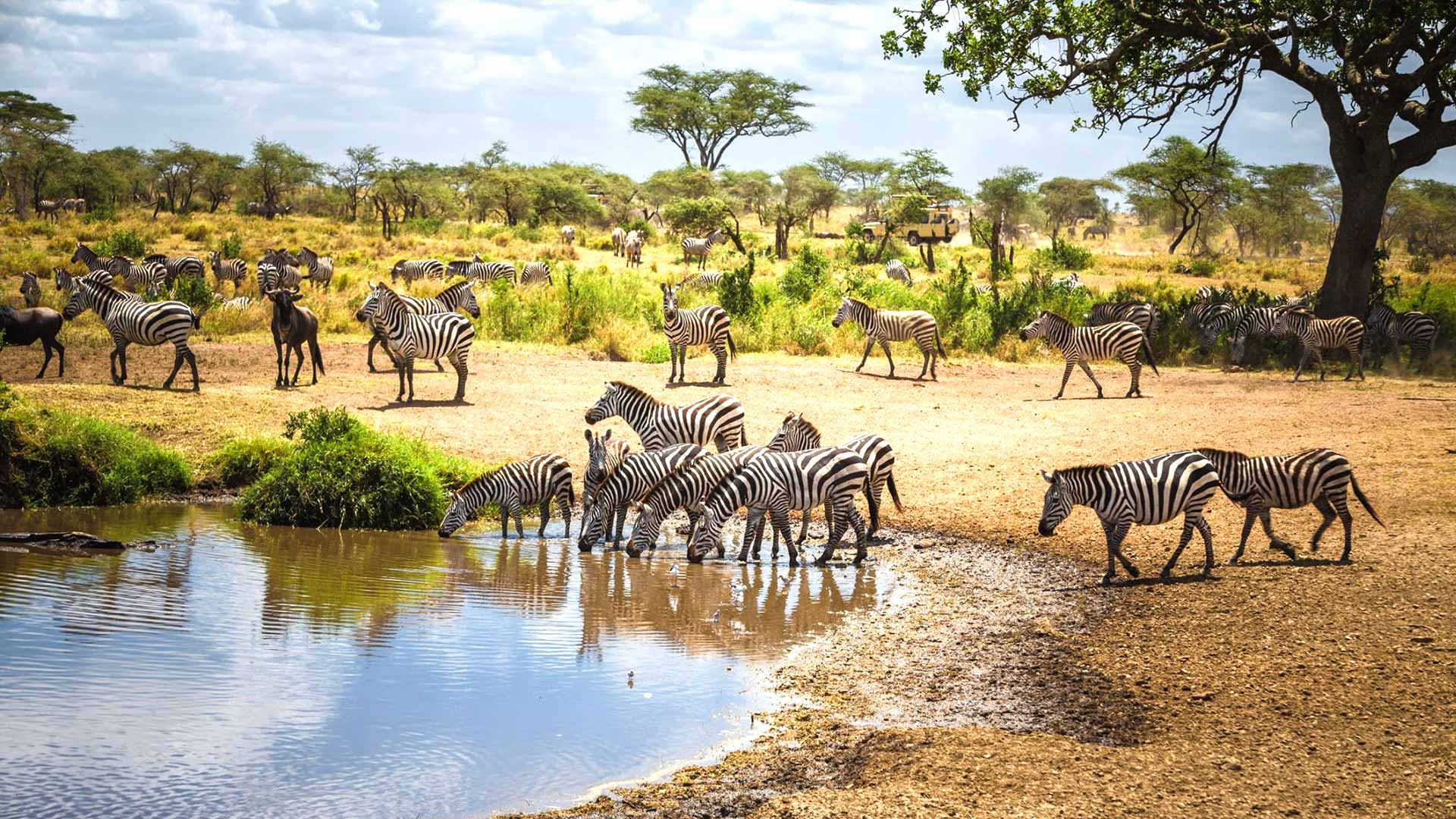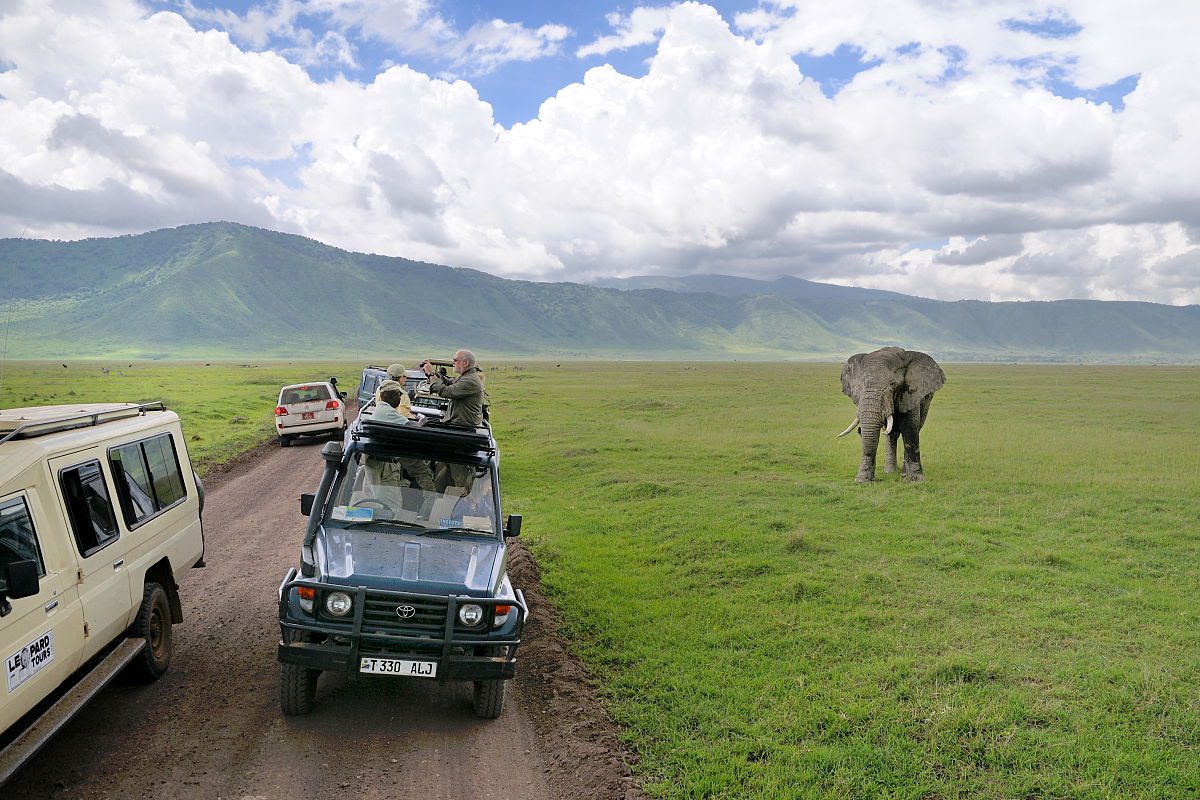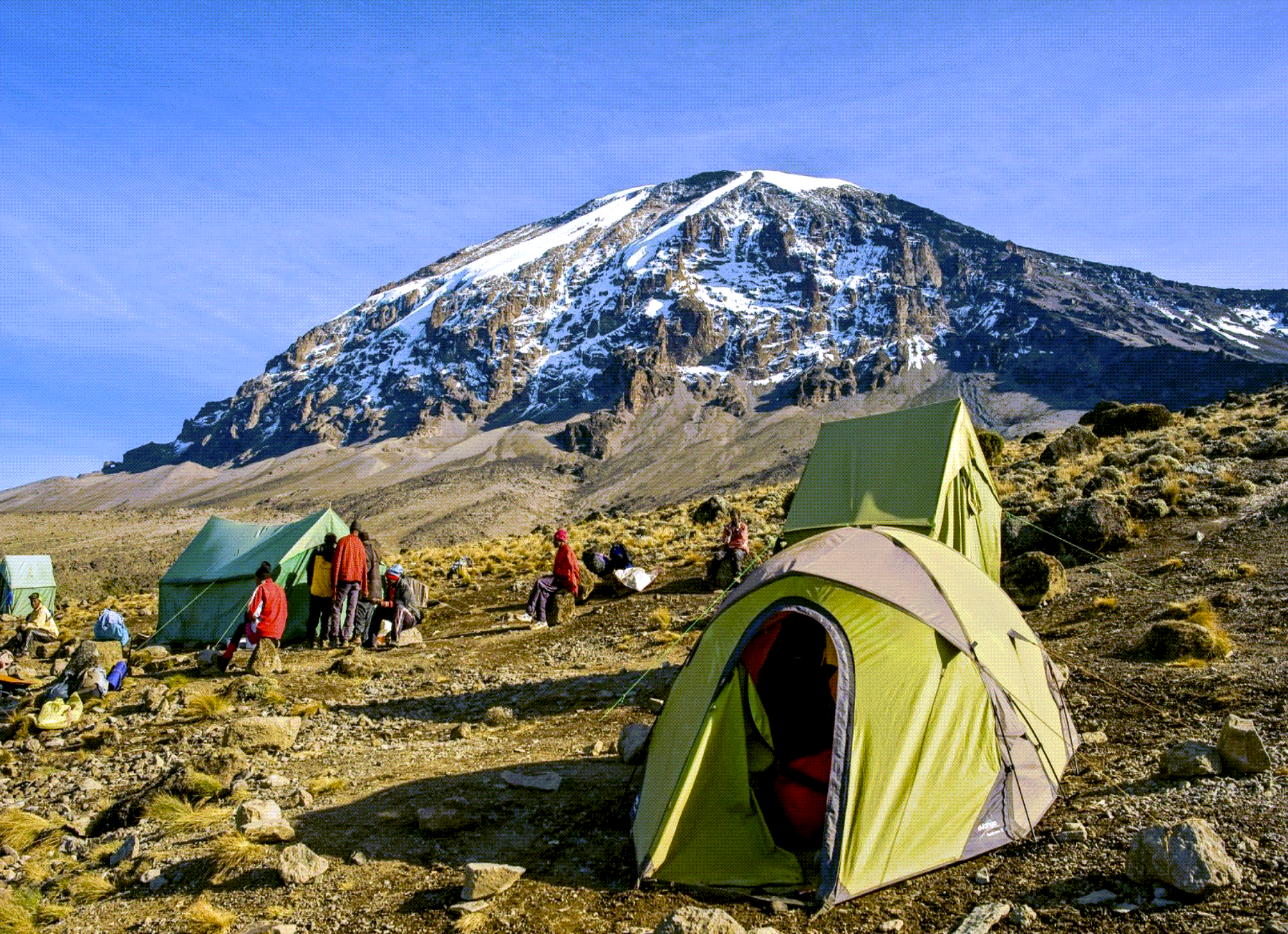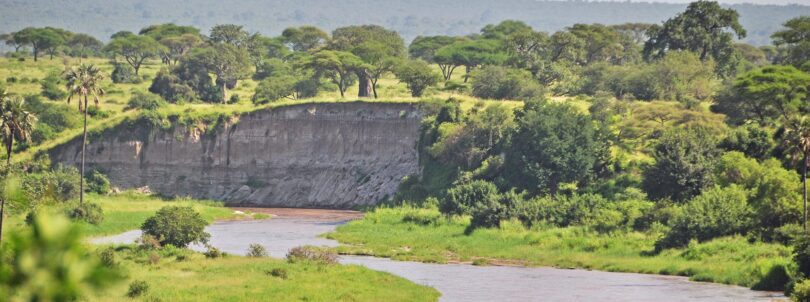Weather in Tanzania is an important aspect for travellers planning on visiting this top African tourist destination. Finding out what the climate is like helps not only in your vacation planning but setting trip expectations.
The United Nations World Tourism Organization (UNWTO) reported in 2023 that Tanzania ranked the second African tourist destination performer. A major contributor is the favourable climatic conditions across Tanzania. What is the weather like anyway? Read on and find out.
Table of Contents
What is the Weather in Tanzania Like?
A dry, lengthy hot season and two short rainy seasons characterize weather in Tanzania all year round. The country has contrasting climate patterns in its coastal, southern and northern regions.
The northern region has mild temperatures, especially within the highlands of the northwestern part. In contrast, the Southern region is dry while the coastal region is humidly hot across the year.

Wild animals at a watering hole in Tanzania. Photo/African Safari Tours
Generally, Tanzanian weather is friendly. It doesn’t have extremes in either the wet or dry seasons despite the variations in regions. The long rains season referred to as Masika starts in March and ends in May. Then, Vuli (short rains seasons) falls between November and January.
Usually, the dry season reigns between July through to October. However, the Central Plateau region is hot and arid throughout the year.
Below is an illustration of a 12-month weather pattern in Tanzania.
| Month | What is the weather like |
| January | Mixed weather. Ealy to mid-January is rainy while the rest of it is sunny and warm |
| February | Generally warm with occasional light showers |
| March | The long rains ‘Masika’ begins with consistent afternoon downpours |
| April | Heavy rainfall especially in the afternoon |
| May | The pattern is similar to March and April with significant downpours in the afternoon |
| June | Heavy rains cease and temperatures start rising |
| July | It is a dry month with cool temperatures in the morning and hot afternoons |
| August | Considerably high temperatures during the day |
| September | Daytime temperatures are extremely high only cooling down in the evenings |
| October | The skies are sunny and bright with pretty comfortable temperatures during the day |
| November | Short rains begin but they are not as intense as the heavy rains between March and May |
| December | Light showers accompanied by cool temperatures. |
What is the Hottest Month in Tanzania?
July to October mark the hottest months in Tanzania with daytime temperatures soaring above 300 C. Afternoons are hotter, especially in the coastal regions. Dry seasons are great for game safari across major wildlife destinations such as:

A national park in Tanzania. Photo/
- Serengeti National Park
- Ngorongoro Crater
- Arusha National Park
- Ruaha National Park
- Lake Manyara National Park
What is the Best Month to Visit Tanzania?
July, August, September and October sum up the weather in Tanzania for a dream holiday. These months are bright, sunny and dry making it easy to see wildlife across Tanzanian parks. Consequently, the dry season is interestingly, an opportune moment to enjoy nature, hike among other outdoor opportunities. e
Most wild animals come out to the open grasslands in search of water. Mosquitoes also reduce making outdoor activities more enjoyable.
Is it Winter in Tanzania Right Now?
Tanzania has no winter even during its coldest season ever recorded, unlike the winter season in South Africa. Masika and Vuli representing the long and short rains season respectively register cooler temperatures but not freezing cold inviting winter.

Mt Kilimanjaro peak. Photo/Africa Kenya Safaris
Hot and dry seasons; rainy and wet seasons are the two major climatic conditions in Tanzania with no winter. Mt Kilimanjaro is the only place with snow in this country and it is common with mountains due to their altitude levels.
Is Tanzania Cheap or Expensive?
Tanzania is an affordable destination when compared to other leading safari destinations such as Botswana, and Kenya. Though ‘cheap or expensive’ is relative, many safari enthusiasts who have been to Kenya and Tanzania corroborate that the latter is cheaper. It is more expensive in Botswana according to findings.
Thankfully, low-budget safari enthusiasts enjoy more offerings in Dar es Salaam, Zanzibar and other tourist hotspots. Retrospectively, it’s likely that you will enjoy less on the same budget, for example, in Botswana, Kenya or South Africa.
Nevertheless, where you head out on a safari, accommodation, means of transport and travel season impact your overall budget.
Conclusion
In conclusion, Tanzanian weather is fantastic for all. Mostly for tourists from the US and Europe where winter is brutal. Mt Kilimanjaro is the only place with snow due to its high altitude. For the rest of the country; they only enjoy a hot and dry season or a rainy and wet season.








